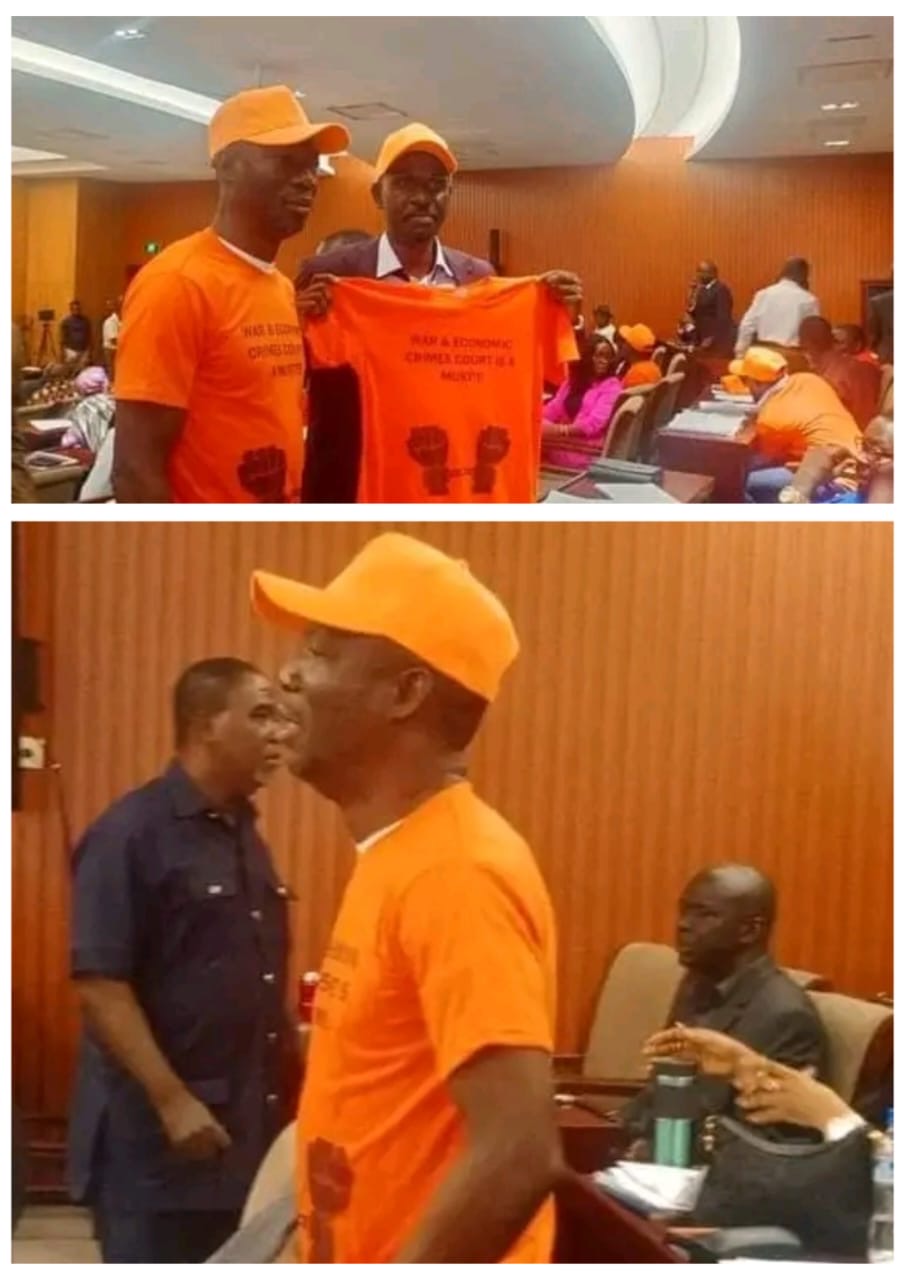No War Crime Court, No Peace: Hon. Yekeh Kolubah Threatens Liberian Senators

By: Jeremiah Sackie Cooper Gmail:jeremiahcooper105@gmail.com
Capitol Hill, Liberia: In a stern and impassioned address to his colleagues in the Liberian Senate, Montserrado County District #10 Representative, Yekeh Kolubah has disclosed that there will be no peace for the Liberian Senate until it passes the resolution calling for the establishment of war and economic crimes court in Liberia.
The declaration comes as Liberia continues to grapple with the legacy of its tumultuous past, marked by a brutal civil war that left deep scars on the fabric of the Liberian society.
Kolubah, known for his outspoken advocacy and unwavering commitment to justice, minced no words as he addressed the Senate. “No War Crime Court, No Peace,” he proclaimed, encapsulating the sentiment shared by many Liberians who demand accountability for past atrocities.
The Montserrado District #10 Lawmaker has vowed to block major entrances of the Liberian Senate over its failure to speed up the passage of the war and economic crimes court’s resolution.
“We are here to make sure that the establishment of war crime court is a reality. We will not allow people to continue to make fun out of the Liberian People’’, he added.
In his address to the Senate, Hon. Yekeh Kolubah made it clear that the time for equivocation is over. He urged his fellow lawmakers to heed the calls of the Liberian people and take decisive action to establish a War and Economic Crime Court without further delay.
Failure to do so, he warned, would not only betray the memory of those who perished during the war but also jeopardize the nation’s prospects for a peaceful and prosperous future.
The significance of Kolubah’s warning reverberates beyond the halls of the Senate, resonating with all Liberians who yearn for justice and closure.
It serves as a poignant reminder that true peace cannot be achieved without confronting the painful truths of the past and holding perpetrators accountable for their actions.
Representative Kolubah at the same time frowned at the Executive Branch of government for protecting individual believed to be perpetrators of war crimes.
“You can’t keep using this issues to get votes. When you (Executive Branch ) need votes from Nimba County you will make Prince Johnson your friend, after getting the votes you will put pressure for the establishment of the court’’, he said.
Rep. Kolubah called on perpetrators of crimes during the Liberian Civil war to embrace the establishment of the war and economic crime court, as it will help them in living freely and give account for their wrong deeds.
“This is about us, we fought war, we must free ourselves from the stigma. We did wronge to our people and we must be punished for it’’ Rep. Kolubah stressed.
The call for a War Crime Court stems from Liberia’s dark chapter of conflict, which spanned from 1989 to 2003 and claimed the lives of hundreds of thousands of people.
During this period, egregious human rights abuses, including mass killings, rape, and forced conscription of child soldiers, were perpetrated by various factions vying for power. Despite the end of active hostilities, the quest for justice has remained elusive for many victims and their families.
For years, advocates like Hon. Yekeh Kolubah have tirelessly campaigned for the establishment of a specialized court to address the crimes committed during the civil war.
According to Representative Kolubah, the establishment of the war and economic crime court, is not only essential for delivering justice to victims but also for fostering national healing and reconciliation.
He emphasized that without accountability for past atrocities, the wounds of war fester, perpetuating cycles of impunity and undermining efforts to build a stable and democratic society.
The issue of accountability for war crimes has long been a contentious one in Liberia, with political, social, and legal complexities complicating the path forward.
While some argue that pursuing justice could destabilize fragile peace efforts or reopen old wounds, others insist that without confronting the past, true reconciliation and sustainable peace will remain elusive.
The establishment of a War Crime Court may be a challenging and complex endeavor, but it is a necessary step on the path to genuine reconciliation and lasting peace.
Only by acknowledging and addressing the injustices of the past can Liberia truly embark on a journey towards healing, unity, and progress.<



